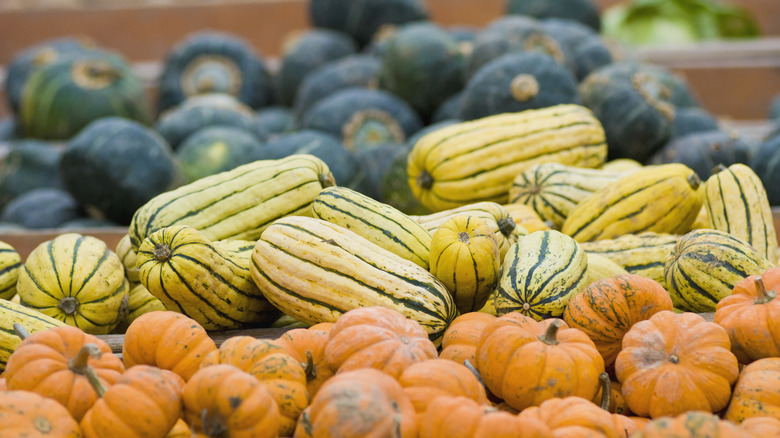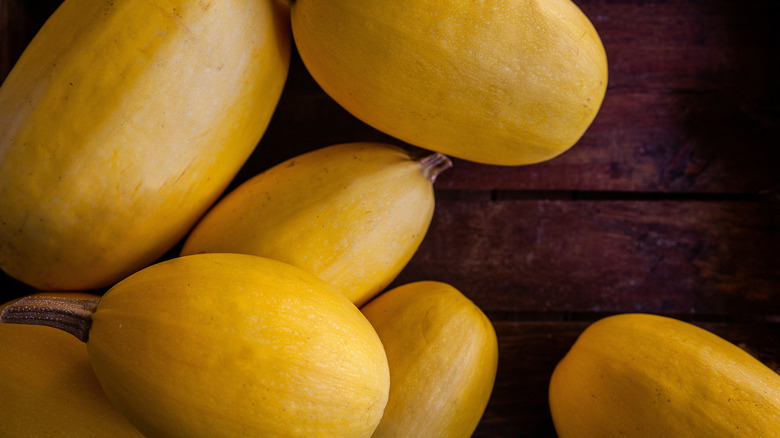Yes, Squash Skin Is Edible (But There Are Some You Won't Want To Eat)
Squash is a splendiferous vegetable (technically a fruit), with the species including everything from zucchini to pumpkin to rarer tyles like the super-long tromboncino and the adorably shaped patty pan. While people eat the skin of summer squash varieties, like zucchini, without a second thought, the skin of winter squashes, like pumpkins or butternuts, might give you pause. Technically, all squash skin is edible, but which ones are actually the most enjoyable to eat?
The one winter squash that has the most appetizing skin is the delicata. Its name is actually a giveaway — the squash's skin is delicate, more like a summer squash's outer layer. So, as the interior flesh cooks, the delicata's skin breaks down and becomes deliciously soft. Acorn squash is another vegetable that has tender skin when roasted, so you can cook your acorn squashes with the skin on, no peeling necessary. Finally, kabocha squash skin can be palatable as long as it's given enough cooking time to make it less toothsome. Not sure how to use this Japanese squash variety? Try this incredible kabocha squash sandwich, but consider leaving the skin on.
These are the squash skins you want to avoid
There are some squash skins that, while technically edible, do not get soft enough to enjoy even when cooked. Luckily, though, the flesh is delicious enough to make up for it! The first squash in this category is spaghetti squash. These oblong, football-shaped yellow veggies are known for their juicy flesh which, once roasted through, can be scraped off the sides of the skin in noodle-y strands. Sadly, though, the skin is very tough. Another edible-but-not-eatable squash skin is pumpkin. While its flesh and seeds are both mouth-wateringly good when cooked, its firm outer layer softens in shape, but not in texture, even after the longest stays in the oven.
Then there's the butternut squash. It might surprise you that it's on this list, as the peel is quite thin, especially compared to the other squashes. Well, it depends on how you cook it. If you're just roasting your butternut, there generally won't be enough time for the skin to soften. However, if you've stuck your butternut in the slow cooker all day, the skin could lose its toughness just enough to merit a nibble.

